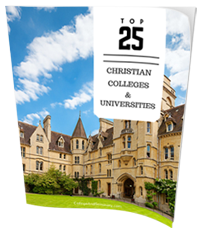The dreaded Term Paper or Research Paper!! Due at the end of the Semester (so there’s no redemption after the due date). This is the cause of much anxiety and stress among undergrads and grad students alike. But it needn’t be; with a little self-discipline and some guidance, you CAN produce a top quality project that will not only help earn your grade, but actually teach you in the process (and isn’t that the whole point anyway?).
While not exhaustive, the following is a list of Ten Tips for writing a better paper – which can be adopted or learned in less than an hour!
General Writing Tips and Helps:
1. Do NOT Procrastinate
The end of the semester is many weeks (or months) away… I have time, right? NO! The sooner you get into your project, the more time you will have to research, organize your data and thoughts and create a first draft. DO NOT DELAY! Your future self will thank you!
2. Follow Directions
Determine the parameters of the assignment, answer the exact question asked, provide direction (and a conclusion) for your paper and DO THE WORK. You need to know precisely what the Professor wants in order to meet the requirements; there are many types of papers to be assigned (each with their own nuances). Understand the scope and expectations for the assignment, stay on point when meeting those requirements (extra data may be somewhat interesting, but if it is extraneous to the primary focus, it adds nothing) and do your own work. You are accountable (and will be graded) on YOUR efforts.
3. Be Clear and Specific
Sentence structure notwithstanding, a clear description is more easily understood and appreciated than a general statement. This is not just for the benefit of word count, it is to ensure you convey your ideas with clarity and understanding (on the reader’s part). You already know what you mean; make sure the reader gets the same idea! At the same time, you cannot speak over the reader’s intellect, either. Define technical terms that an average person wouldn’t be familiar with and use object lessons to drive home your point.
Sentence structure notwithstanding, a clear description is more easily understood and appreciated than a general statement. This is not just for the benefit of word count, it is to ensure you convey your ideas with clarity and understanding (on the reader’s part). You already know what you mean; make sure the reader gets the same idea! At the same time, you cannot speak over the reader’s intellect, either. Define technical terms that an average person wouldn’t be familiar with and use object lessons to drive home your point.
4. What is your point?
While tip #2 advises you to make sure your paper has a point, the exhortation here is not to lose the reader after the fourth paragraph. Wandering aimlessly through a stream-of-consciousness may be fun for some – but not your professor! Stay focused on the topic, expand on relevant details, provide good descriptions (see tip #3) and share your conclusion. This can be the difference between a good paper and an excellent one. The most common structure is to present your point in the opening paragraph and spend the rest of the paper clarifying, supporting and expounding on that one idea. The last paragraphs draw the issue to a logical close and reinforces your point with a well thought out conclusion.
5. Get the Words Down Fast–And Edit
Your initial draft may seem brilliant (and you’re probably wrong). Re-read, edit and rearrange your thoughts. Even the best authors go through editing (either themselves or trusted collaborators) to refine, sharpen and improve their work. ‘One draft Charlie’ doesn’t exist – and if he did, he wouldn’t be you!
The next five tips are more about the practical mechanics of writing:
6. Limit your use of quotations
Your paper is to present your ideas, not be a compilation of other people’s thoughts. A brief citation should be sufficient to support any statement you make (if it adds credibility or impact). And be sure to document your source! Far better to present your understanding of the topic or point you are working on than rely on the words of others to explain yourself.
7. Remove “very” from your vocabulary
Despite tip #6, I will share what Mark Twain said about modifiers:
“Substitute ‘damn’ every time you’re inclined to write ‘very;’ your editor will delete it and the writing will be just as it should be.”
Unnecessary, useless and extraneous modifiers (see what I did there?) clog your paper with meaningless filler. While they expand your word count but (as mentioned in tip #3) but do not add value – thry detract from it. If you must use adjectives, be sparing (to increase impact). Similarly, the use of slang (even culturally current vernacular) is inappropriate and must be prohibited.
8. Write in the Third Person
YOUR paper presents YOUR ideas, research and conclusions. But how tedious that becomes when the reader sees “I” “me” and “my” splashed all over the document. Also, “I think” “I believe” and “you know” will certainly drive down your grade. First person POV leads to an impression of arrogance and self-centeredness. Present your report in a non-distracting, humble manner.
9. Grammar matters!
Spell check has grown into a pseudo-editor (reviewing basic sentence structure), but it is not foolproof. Understand the difference between “it’s and its,” “there, their and they’re” and other traps that snare the less observant. Nothing damages an author’s credibility like stumbling over a 4th grade grammar rule – it will stand out! In the same way people are judged (read: evaluated for their intelligence) by their oral vocabulary, authors are evaluated by their command of the written word. Don’t be that one who presents the most articulate paper on the most complex topic and misuses an apostrophe or uses the wrong word.
10. Ask for Help
Many schools have writing centers designed to assist with your assignments. If your school has one, use it. These resources are to help you present an excellent report. Proofreaders, editors and other resources will improve your product – which will reflect better on you! In the big picture, there are very few “lone rangers” who achieve success by themselves.






